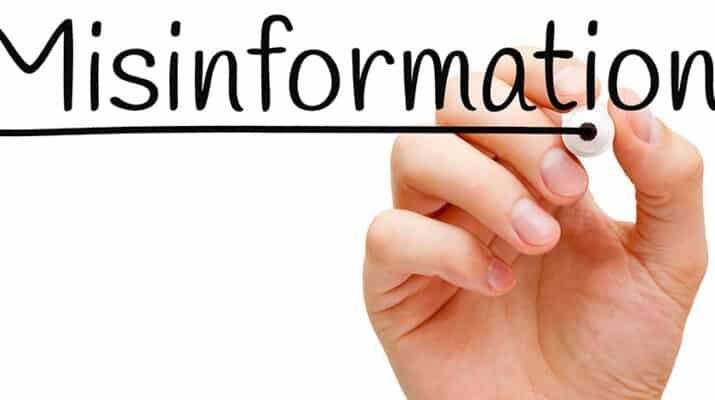By Deborah Jeanne Sergeant
According to a 2022 study commissioned by CharityRx of 2,000 U.S. adults, Americans turn to social media influencers for advice on anxiety (34%), weight loss (34%) and depression (33%), each of which represents the most common sources of information on these topics.
The study also relates that nearly 20% of Americans trust health influencers more than their local medical professionals and one in five rely on TikTok videos before seeing a doctor when they seek treatment for a health issue.

Statistics like these trouble Lauren Wetterhahn, executive director of the Inclusive Alliance IPA, Inc. in Syracuse, because of the misinformation and misinterpretation of solid health information on social media.
“Social media is a low barrier entryway to share information,” she said. “Anyone with an account can say anything they want on social media, which is not the same as having the information, training and expertise to develop a resource for the Centers for Disease Control and Prevention. It’s not easy as a regular person to see if what was put on social media is developed by an expert or was developed by someone selling something or has other goals for what they’re putting on the platform.”
The anecdotes offered by social media influencers seem to especially sway young people who are less experienced in research. Contrast with those the healthcare organizations that are highly regulated as they exist to protect people. That’s why they are such good sources.
Wetterhahn recommends the websites of the National Institutes of Health, Mayo Clinic, local health departments and other well-known healthcare organizations. But people should watch out for sites that “make extraordinary claims, whether in the positive like a miracle cure or in the negative. That is another one of the hallmarks the NIH wants us to consider when we’re looking at healthcare information. If a site or post offers a quick, easy solution to a complicated problem or makes all-or-nothing statements, that may be an indication that what you’re looking at isn’t completely accurate.”
TikTok’s content — along with a good share of other social media — is for entertainment purposes or at best anecdotal examples, not healthcare information that applies to the general population. Even if it cites studies, these may be outdated, lacking a control group or other scientific parameters, performed in other countries with different medical standards or with a sample population far different from the viewer. Even sound studies may be misinterpreted.
“It takes training to understand how studies are designed and what you can and can’t infer from the results of one study,” Wetterhahn said. “It’s hard as a layperson to do that which is why it’s important to share with someone who has that training.”
Physician Az Tahir, who offers functional medicine in and in Syracuse at High Point Wellness, and in Henrietta, likes the Centers for Disease Control and Prevention, and other government sites, along with PubMed.
“Look to the professional organizations like American College of Physicians,” Tahir said. “The cardiologists, Alzheimer’s, neurology, all these specialties and more have their own organization websites. Cleveland Clinic and WebMD have a lot of good information.”
He discourages researching for health information on social media as it relies too heavily upon individual opinion and experience instead of research.
“You have to go to reliable sources and the final suggestions should be from doctors,” Tahir said. “You need balance.”
Oftentimes, patients research their symptoms online to self-diagnose before seeing a provider. Although research can help generate more in-depth questions if patients then see a provider, some people try home remedies or otherwise delay important care because of a false diagnosis.
Before publication, books and reputable periodicals fact check and ensure that the information is correct and up to date. Few such checks exist on social media and consumer-sourced information on sites like Reddit and Quora.
Online quizzes can falsely lead participants to think that their unrelated symptoms add up to something serious. Although some healthcare providers may use an evidence-based questionnaire to help patients better express their symptoms and their severity, online quizzes about symptoms tend to ask too few questions and derive inaccurate conclusions.
“Oftentimes, reaching out to your primary care provider can help you figure out the best resources,” said Nicole DeRosa, Psy.D. and chief clinical officer at the Kelberman Center in Syracuse. “Social media has a lot of conflicting information.”
Although she appreciates the input of personal accounts and the ease of access to information online, she encourages people to look at the source of their information and rely on sites like the CDC, which thoroughly researches, uses input from credentialed experts and keeps information up to date.
“You can find information online and ask us as providers,” DeRosa said.
The following are reputable sources of healthcare information:
Organization — Website
CDC — www.cdc.gov
Cleveland Clinic — https://my.clevelandclinic.org
Food & Drug Administration— www.fda.gov
Mayo Clinic— www.mayoclinic.org
Psychology Today— psychologytoday.com
PubMed— www.ncbi.nlm.nih.gov/pubmed
SUNY Upstate— https://www.upstate.edu/
WebMD— www.webmd.com
World Health Organization— www.who.int

